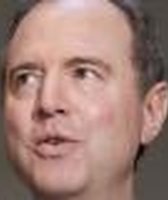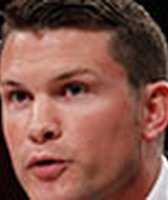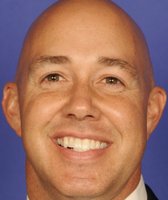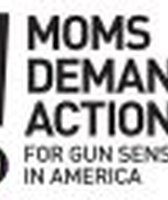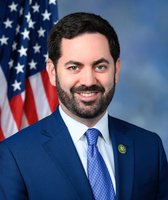Stand up for the facts!
Our only agenda is to publish the truth so you can be an informed participant in democracy.
We need your help.
I would like to contribute
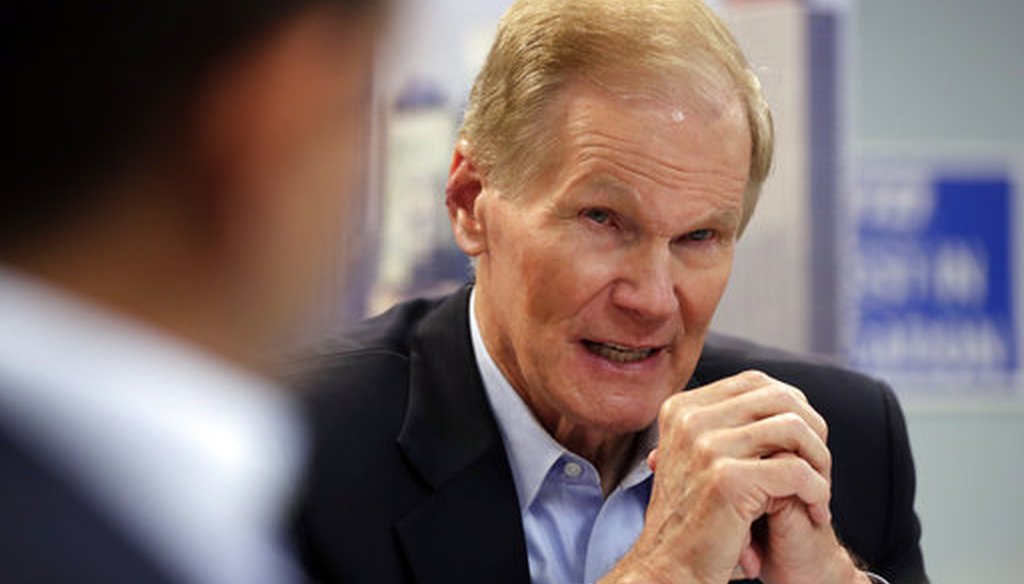
Sen. Bill Nelson, D-Fla., speaks during a roundtable discussion with education leaders from South Florida at the United Teachers of Dade headquarters, Aug. 6, 2018, in Miami. (AP)
Florida U.S. Sen. Bill Nelson recently warned that Russian hackers have breached Florida’s voting systems. But he offered little evidence to back up his point.
In a series of events and interviews in the first half of August, Nelson said that Russians are in Florida’s election records ahead of the Aug. 28 primary and Nov. 6 general election.
Nelson made his comments in the midst of a tough re-election battle against Republican Gov. Rick Scott. But Nelson has provided no evidence for his statements, saying that the information is "classified" and pointing to one TV report based on anonymous sources. State and federal officials, as well as multiple county election officials, have said they have no evidence that Russians are in Florida’s election records.
We are not putting Nelson’s statements on the Truth-O-Meter at this time because the facts are in dispute, and we can’t independently evaluate classified information. But here’s what you should know about Nelson’s claims.
Nelson’s comments
It began with a reporter’s question at a campaign appearance on Aug. 7 in Tallahassee.
Sign up for PolitiFact texts
A reporter asked Nelson if he shared Sen. Marco Rubio’s concern that county elections officials were not taking the threat of meddling seriously enough.
"The Russians are in Florida's records," Nelson responded.
Tampa Bay Times reporter Steve Bousquet asked, "Do you know which records the Russians are accessing?" Nelson replied, "That’s classified."
Nelson was asked about his comments the next day at a campaign event in Tampa. Nelson said of the Russians that "they have already penetrated certain counties in the state, and they now have free rein to move about." Nelson said that he was referring to hacking right now and not the 2016 election.
Nelson told reporters that along with Rubio he wrote a letter warning Florida election officials about hacking.
"Two senators — bipartisan — reached out to the election apparatus of Florida to let them know that the Russians are in the records, and all they have to do, if those election records are not protected, is to go in and start eliminating registered voters."
But that July 2 letter didn’t state unequivocally that Russians are in Florida records right now. The letter stated that "Russian government actors targeted our election infrastructure during the 2016 elections." The letter also says that the Senate Select Committee on Intelligence found that "it is possible that additional activity occurred and has not yet been uncovered."
Nelson’s office did not answer our questions for this article, instead sending us an Aug. 17 NBC report to bolster its position. NBC wrote that three people familiar with the intelligence had told the network that there is a classified basis for Nelson's assertion. NBC didn’t name its sources.
The sources said the intelligence had been described to Nelson by two senators: Republican Richard Burr, the chairman of the Senate Intelligence Committee, and Mark Warner, the top-ranking Democrat.
"The sources say Nelson was not supposed to speak publicly about the matter, and he erred by suggesting that the information was new," NBC reported.
Burr’s office did not respond to an inquiry from PolitiFact. In an interview, Warner’s office declined to directly address the accuracy of Nelson’s assertion but said in a statement that Nelson and Rubio "are right to warn their state’s election officials about this very serious and ongoing threat to our democracy."
A spokeswoman for Rubio did not cite any specific evidence that Florida election information had been hacked.
What state and federal officials have said
Florida’s top elections official, Ken Detzner, has repeatedly said he has seen no evidence of hacking in the state’s systems. He has asked Nelson to provide more information but has not received a response. Detzner is a political appointee of Scott.
Detzner’s office has also reached out to the federal Department of Homeland Security, the FBI and the Florida Department of Law Enforcement about Nelson’s allegations, saying none had information to corroborate Nelson’s statements.
On Aug. 21, DHS Secretary Kirstjen Nielsen and FBI Director Christopher Wray wrote a letter to Detzner stating that they "have not seen new or ongoing compromises of state or local election infrastructure in Florida." However, they said that Russia has previously shown the "intent and capability to conduct malicious cyber operations." This echoes a statement earlier in August from DHS.
Nelson’s spokesman Ryan Brown didn’t respond to questions from PolitiFact about that statement, which seems to contradict Nelson.
In a statement to the media, Brown said the letter did not contradict Nelson: "In my opinion, there's nothing in this letter that contradicts what Sen. Nelson said he was told a few months ago, and what he and Sen. (Marco) Rubio have tried to warn about in order to guard against Russian meddling in our elections. The governor of Florida has a security clearance and could have quickly and directly received information, answers and posed any questions instead of engaging in these confusing and partisan histrionics of the past week."
When Nelson was asked about an earlier statement by DHS pouring cold water on his allegations, he replied: "Well, they're not going to know. They don't have the records. The records are retained by the local county supervisor of elections. So that's why the intelligence leadership asked us to reach out to them, to say reach out to the FBI or DHS to come in and check the security of your system."
Asked if he believed that Russians had already penetrated Florida voter rolls, Nelson said: "I think it is very clear that the Russians were in Florida in 2016, that they are continuing."
What county election officials have said
Paul Lux, the president of the Florida State Association of Supervisors of Elections, and the association’s attorney, Ronald Labasky, told PolitiFact they had seen no evidence of Russian hacking.
Lux said that all the counties have signed up for alerts from the Center for Internet Security that would alert them to such issues, and that many counties were visited by the FBI and state officials to check out their facilities.
Election officials in Miami-Dade, Broward, Hillsborough, Pasco, Pinellas and Orange counties all also told PolitiFact that they had seen no signs of election hacking.
More than 1 million voters have cast ballots by mail or early voting ahead of Florida’s Aug. 28 primaries.
Our Sources
Bill Nelson, interview with the Tampa Bay Times, Aug. 8, 2018
Bill Nelson, remarks in Tallahassee, Aug. 7, 2018
Bill Nelson, remarks in Lake City, Fla., Aug. 15, 2018
Bill Nelson and Marco Rubio, letter, July 2, 2018.
Senate Intelligence Committee, unclassified summary of Russia findings, July 3, 2018
Special counsel investigation, indictment of 12 Russian operatives, July 13, 2018
NBC News, "Bill Nelson wasn't making things up when he said Russians hacked Florida election systems," Aug. 17.2018
Tampa Bay Times, "Rubio meets with Florida election officials over Russia threat," May 30, 2018
Tampa Bay Times, "Facing Nelson’s warning, Homeland Security says it hasn’t seen ‘any new compromises’ by Russians," Aug. 9, 2018
Miami Herald, "Florida election officials seek info as support builds for Nelson’s Russian-hack claim," Aug. 18, 2018
Florida State Association of Supervisors of Elections, Letter, Aug. 9, 2018
Pasco Supervisor of Elections, Statement, Aug. 9, 2018
Pinellas Supervisor of Elections, Statement, Aug. 9, 2018
Miami Dade County Supervisor of Elections, Fact sheet, Accessed Aug. 17, 2018
Chicago Tribune, "Illinois elections board 'very likely' named in Mueller indictment of Russian hackers, officials say," July 13, 2018
Washington Post Fact Checker, "Has Russia hacked into Florida’s election system? There is no evidence," Aug. 17, 2018
Email interview, Olivia Perez-Cubas, Sen. Marco Rubio’s spokeswoman, Aug. 17, 2018
Email and telephone interview, Sarah Revell, Florida Division of Elections spokesman, Aug. 17, 2018
Telephone interview, Suzy Trutie, Miami Dade elections spokeswoman, Aug. 17, 2018
Email interview, Patricia Santiago, Broward supervisor of Elections spokeswoman, Aug. 17, 2018
Email interview, Bill Cowles, Orange County Supervisor of Elections, Aug. 17, 2018
Telephone interview, Dustin Chase, Pinellas County Supervisor of Elections spokesman, Aug. 17, 2018
Email interview, Jillian Stickels, FBI spokeswoman, Aug. 17, 2018
Email interview, Sara Sendek, Department of Homeland Security spokeswoman, Aug. 17, 2018
Telephone interview, Paul Lux, Okaloosa Supervisor of Elections and president of the Florida State Association of Supervisors of Elections, Aug. 17, 2018
Telephone interview, Ronald Labasky, attorney for Florida State Association of Supervisors of Elections, Aug. 17, 2018
Email interview with Rachel Cohen, spokeswoman for Mark Warner, Aug. 17, 2018
Email interview, Ryan Brown, U.S. Sen. Bill Nelson spokesman, Aug. 17, 2018
CNN, "Sen. Bill Nelson stands by Russia claims as Florida officials want answers," Aug. 18, 2018
Tampa Bay Times, "Rick Scott on Bill Nelson: ‘He shouldn’t be saying these things,’" Aug. 22, 2018
Tampa Bay Times, "Florida election officials seek info as support builds for Bill Nelson's Russian-hack claim," Aug. 19, 2018
Tampa Bay Times, "Feds: No ‘new or ongoing compromises’ of Florida voting systems," Aug. 21, 2018
Miami Herald, "Florida election officials seek info as support builds for Nelson's Russian-hack claim," Aug. 18, 2018
Interview, McKinley Lewis, Gov. Rick Scott spokesman, Aug. 22, 2018


